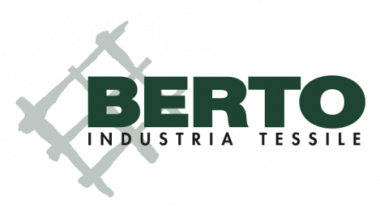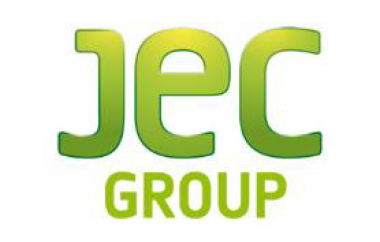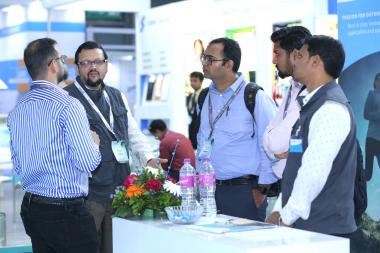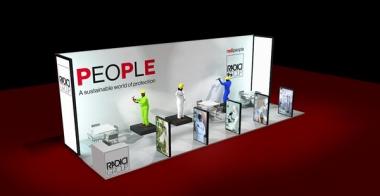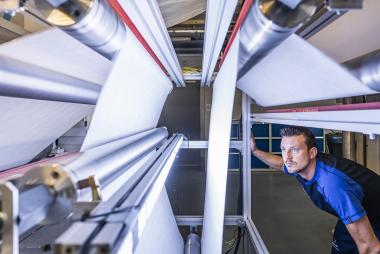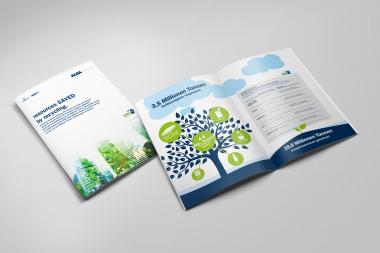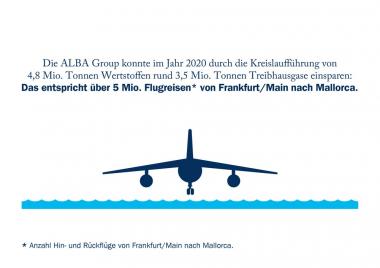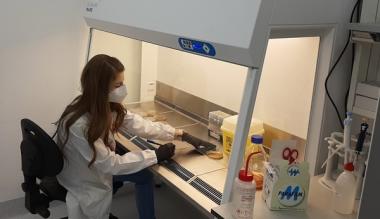ANDRITZ at Techtextil India 2021
International technology group ANDRITZ will present its innovative nonwovens and textile technologies at the booth of its Indian representative PRN Techtex at Techtextil India 2021 in Mumbai, India, from November 25 to 27, 2021. A special focus will lie on its technologies for air-through bonding, needlepunch, textile recycling, and processes for biodegradable wipes, like spunlace and WetlaceTM.
Air-through Bonding
Air-through-bonding lines are the preferred choice for producing nonwovens with the best quality of softness and bulk for acquisition distribution layers, top sheets, and back-sheet products. With ANDRITZ carding machines and the new flat belt oven, customers benefit from high-performance fabrics from 16 to 80 gsm, produced with bicomponent fibers. Several Chinese customers have already invested in ANDRITZ aXcess carding machines, which provide perfect web uniformity. In addition, the CETI (European Center for Innovative Textiles) in Lille, France, has installed an air-through-bonding oven from ANDRITZ.
Textil-recycling Technologies
Recently, ANDRITZ acquired Laroche SAS, a leading supplier of fiber processing technologies such as opening, blending, dosing, airlay web forming, textile waste recycling, and decortication of bast fibers. The product portfolio further complements and increases the ANDRITZ Nonwoven product range. One focus of this product range lies on complete recycling lines for post-consumer and industrial textile waste to produce fibers for re-spinning and/or nonwoven end uses.
Needlepunch Technologies
Driven by the dynamic market for durable nonwovens, ANDRITZ has developed an elliptical pre-cylinder tacker – the PA3000. With this modern machine, ANDRITZ is responding to customer demands for higher capacities and lighter products. The PA3000 is an optimized cylinder pre-needleloom, which offers greater speeds and widths and has been specially developed for lighter webs. There is no friction between the web and the rolls, and there are no issues with the visual appearance.
ANDRITZ is also focusing on its latest needling technology for producing veloured felts, mainly for applications in the automotive industry.
In addition, ANDRITZ will be presenting the next generation of its batt-forming technology, the ProWin system. ProWin is a further development of ProDynTM and ProWidTM, which have achieved a high level of acceptance on the market with around 200 systems installed. This technology improves the current weight-profiling options and increases the actual production capacity.
Production of Bio-Wipes
For many years now, ANDRITZ has offered different nonwoven processes, such as spunlace and Wetlace, with one goal in mind: reduction and elimination of plastic raw materials while maintaining the high quality of the desired product properties. The latest development in this field is the ANDRITZ neXline wetlace CP line. This is a fully engineered production line, combining the benefits of wetlaid and drylaid technologies to produce a new generation of biodegradable wipes. This process achieves high performance entirely with plastic-free raw materials. The added benefit of using a blend of fibers, like wood pulp, short-cut cellulosic fibers, viscose, cotton, hemp, bamboo, or linen, without chemical additives, results in a 100% sustainable fabric.
ANDRITZ AG










